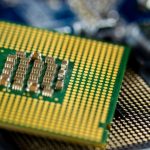The recent announcement about the Trump administration reversing the Biden-era export controls on AI chips marks a notable development in technology policy. This decision is perceived as a move to simplify regulations and perhaps enhance American technological preeminence. The policy shift could significantly affect AI chip distribution globally, influencing markets and diplomatic relations. Critics and supporters alike are closely watching these changes, trying to assess how they might affect international trade and innovation.
The earlier Biden administration policy proposed a three-tier regulatory framework, intending to control the global distribution of advanced AI chips. An approach rooted in national security concerns, it reflected long-standing tensions between the United States and China over technological advancements. However, the Trump administration’s modification to the policy has introduced a new dimension, signaling a departure from these previous strategies. This regulatory change essentially opens the path for American innovation while maintaining necessary checks.
What Does the Policy Reversal Entail?
The move by the Trump administration will dismantle the complex export framework established previously, which placed limits on AI chip distribution based on strategic international alliances and security risks. Replacing it with a simpler approach, the new policy aims to enable more efficient control of AI technologies‘ global flow. Yet, challenges remain in balancing security with commercial interests.
“The Biden AI rule is overly complex, overly bureaucratic, and would stymie American innovation,” a spokeswoman from the Commerce Department stated.
This view suggests that the new policy prioritizes the free development of the American tech industry.
Implications for Tech Companies?
Tech giants like Nvidia might stand to gain from this policy shift, as the removal of restrictive controls could enlarge their potential market, specifically in countries that were previously constrained.
“We will be replacing it with a much simpler rule that frees American innovation and ensures American AI dominance,” continued the spokesperson. Nvidia CEO Jensen Huang has also been vocal against the former restrictions, foreseeing a lucrative AI chip market.
Nevertheless, the American stance on export controls indicates that checks on transactions involving countries like China may still be upheld.
How Might Countries Respond?
Countries like Saudi Arabia and the UAE, responding to restricted chip acquisitions, might find the softened stance beneficial. They could receive favorable adjustments in trade terms as they engage in diplomatic discussions with the US. Nations previously limited by the tiered system may seek renewed opportunities with American companies, potentially transforming existing partnerships.
While the contours of the new policy are still emerging, it is clear that the global AI landscape is being reshaped by these decisions. This strategic pivot may align with the Trump administration’s broader objectives of sustaining US dominance in evolving technological spheres while maintaining a cautious eye on international competition. The transformation offers an opportunity to enhance the dynamism of the US market and presents a calculated gamble in the ever-volatile domain of global tech trade.










